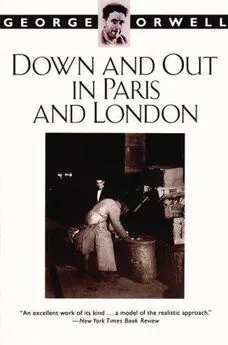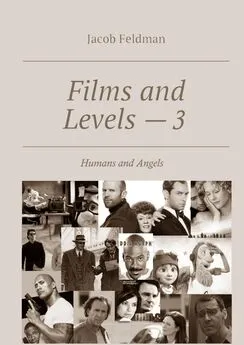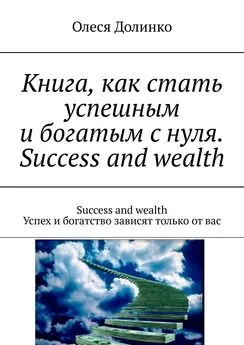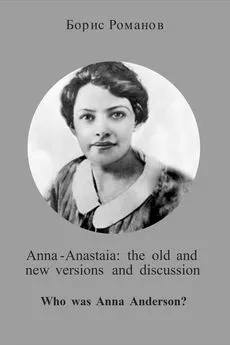George Orwell - Down and Out in Paris and London
- Название:Down and Out in Paris and London
- Автор:
- Жанр:
- Издательство:неизвестно
- Год:неизвестен
- ISBN:нет данных
- Рейтинг:
- Избранное:Добавить в избранное
-
Отзывы:
-
Ваша оценка:
George Orwell - Down and Out in Paris and London краткое содержание
Down and Out in Paris and London - читать онлайн бесплатно полную версию (весь текст целиком)
Интервал:
Закладка:
going to take the risk of setting you free, even by an
extra hour a day. So, dear brothers, since evidently you
must sweat to pay for our trips to Italy, sweat and be
damned to you."
This is particularly the attitude of intelligent,
cultivated people; one can read the substance of it in a
hundred essays. Very few cultivated people have less
than (say) four hundred pounds a year, and naturally
they side with the rich, because they imagine that any
liberty conceded to the poor is a threat to their own
liberty. Foreseeing some dismal Marxian Utopia as the
alternative, the educated man prefers to keep things as
they are. Possibly he does not like his fellow-rich very
much, but he supposes that even the vulgarest of them
are less inimical to his pleasures, more his kind of
people, than the poor, and that he had better stand by
them. It is this fear of a supposedly dangerous mob that
makes nearly all intelligent people conservative in their
opinions.
Fear of the mob is a superstitious fear. It is based on
the idea that there is some mysterious, fundamental
difference between rich and poor, as though they were
two different races, like negroes and white men. But in
reality there is no such difference. The mass of the rich
and the poor are differentiated by their incomes and
nothing else, and the average millionaire is only the
average dishwasher dressed in a new suit. Change
places, and handy dandy, which is the justice, which is
the thief? Everyone who has mixed on equal terms with
the poor knows this quite well. But the trouble is that
intelligent, cultivated people, the very people who might
be expected to have liberal opinions, never do mix with
the poor. For what do the majority of educated people
know about poverty? In my copy of Villon's poems the
editor has actually thought it necessary to explain the
line «
Ne pain ne voyent qu'aux fenestres" by a footnote; so
remote is even hunger from the educated man's
experience. From this ignorance a superstitious fear of
the mob results quite naturally. The educated man
pictures a horde of submen, wanting only a day's liberty
to loot his house, burn his books, and set him to work
minding a machine or sweeping out a lavatory.
"Anything," he thinks, "any injustice,
sooner than let that mob loose." He does not see that
since there is no difference between the mass of rich and
poor, there is no question of setting the mob loose. The
mob is in fact loose now, and-in the shape of rich men-is
using its power to set up enormous treadmills of
boredom, such as "smart" hotels.
To sum up. A
plongeur is a slave, and a wasted slave,
doing stupid and largely unnecessary work. He is kept at
work, ultimately, because of a vague feeling that he
would be dangerous if he had leisure. And educated
people, who should be on his side, acquiesce in the
process, because they know nothing about him and
consequently are afraid of him. I say this of the
plongeur
because it is his case I have been considering; it would
apply equally to numberless other types of worker. These
are only my own ideas about the basic facts of a
plongeur's
life, made without reference to immediate economic
questions, and no doubt largely platitudes. I present
them as a sample of the thoughts that are put into one's
head by working in a hotel.
XXIII
As soon as I left the Auberge de Jehan Cottard I went to
bed and slept the clock round, all but one hour. Then I
washed my teeth for the first time in a fortnight, bathed
and had my hair cut, and got my clothes out of pawn. I
had two glorious days of loafing. I even went in my best
suit to the Auberge, leant against the bar and spent five
francs on a bottle of English beer. It is a curious
sensation, being a customer where you have been a slave's
slave. Boris was sorry that I had left the restaurant just at
the moment when we were lancés and there was a. chance
of making money. I have heard
from him since, and he tells me that he is making a
hundred francs a day and has set up a girl who is trés
serieuse and never smells of garlic.
I spent a day wandering about our quarter, saying
good-bye to everyone. It was on this day that Charlie
told me about the death of old Roucolle the miser, who
had once lived in the quarter. Very likely Charlie was
lying as usual, but it was a good story.
Roucolle died, aged seventy-four, a year or two
before I went to Paris, but the people in the quarter still
talked of him while I was there. He never equalled
Daniel Dancer or anyone of that kind, but he was an
interesting character. He went to Les Halles every
morning to pick up damaged vegetables, and ate cat's
meat, and wore newspaper instead of underclothes, and
used the wainscoting of his room for firewood, and
made himself a pair of trousers out of a sack-all this
with half a million francs invested. I should like very
much to have known him.
Like many misers, Roucolle came to a bad end
through putting his money into a wildcat scheme. One
day a Jew appeared in the quarter, an alert, businesslike
young chap who had a first-rate plan for smuggling
cocaine into England. It is easy enough, of course, to buy
cocaine in Paris, and the smuggling would be quite
simple in itself, only there is always some spy who
betrays the plan to the customs or the police. It is said
that this is often done by the very people who sell the
cocaine, because the smuggling trade is in the hands of a
large combine, who do not want competition. The Jew,
however, swore that there was no danger. He knew a way
of getting cocaine direct from Vienna, not through the
usual channels, and there would be no blackmail to pay.
He had got into touch with Roucolle through a young
Pole, a student at the Sorbonne, who
was going to put four thousand francs into the scheme if
Roucolle would put six thousand. For this they could buy
ten pounds of cocaine, which would be worth a small
fortune in England.
The Pole and the Jew had a tremendous struggle to
get the money from between old Roucolle's claws. Six
thousand francs was not much-he had more than that
sewn into the mattress in his room-but it was agony for
him to part with a sou. The Pole and the Jew were at him
for weeks on end, explaining, bullying, coaxing, arguing,
going down on their knees and imploring him to produce
the money. The old man was half frantic between greed
and fear. His bowels yearned at the thought of getting,
perhaps, fifty thousand francs' profit, and yet he could
not bring himself to risk the money. He used to sit in a
corner with his head in his hands, groaning and
sometimes yelling out in agony, and often he would kneel
down (he was very pious) and pray for strength, but still
he couldn't do it. But at last, more from exhaustion than
anything else, he gave in quite suddenly; he slit open the
mattress where his money was concealed and handed
over six thousand francs to the Jew.
The Jew delivered the cocaine the same day, and
promptly vanished. And meanwhile, as was not sur-
prising after the fuss Roucolle had made, the affair had
been noised all over the quarter. The very next morning
the hotel was raided and searched by the police.
Roucolle and the Pole were in agonies. The police were
downstairs, working their way up and searching every
room in turn, and there was the great packet of cocaine
on the table, with no place to hide it and no chance of
escaping down the stairs. The Pole was for throwing the
stuff out of the window, but Roucolle
would not hear of it. Charlie told me that he had been
present at the scene. He said that when they tried to
take the packet from Roucolle he clasped it to his
breast and struggled like a madman, although he was
seventy-four years old. He was wild with fright, but he
would go to prison rather than throw his money away.
At last, when the police were searching only one floor
below, somebody had an idea. A man on Roucolle's floor
had a dozen tins of face-powder which he was selling on
commission; it was suggested that the cocaine could be
put into the tins and passed off as face-powder. The
powder was hastily thrown out of the window and the
cocaine substituted, and the tins were put openly on
Roucolle's table, as though there there were nothing to
conceal. A few minutes later the police came to search
Roucolle's room. They tapped the walls and looked up the
chimney and turned out the drawers and examined the
floorboards, and then, just as they were about to give it
up, having found nothing, the inspector noticed the tins
on the table.
"
Tiens ," he said, "have a look at those tins. I hadn't
noticed them. What's in them, eh?"
"Face-powder," said the Pole as calmly as he could
manage. But at the same instant Roucolle let out a loud
groaning noise, from alarm, and the police became
suspicious immediately. They opened one of the tins and
tipped out the contents, and after smelling it, the
inspector said that he believed it was cocaine. Roucolle
and the Pole began swearing on the names of the saints
that it was only face-powder; but it was no use, the more
they protested the more suspicious the police became.
The two men were arrested and led off to the police
station, followed by half the quarter.
At the station, Roucolle and the Pole were inter
rogated by the Commissaire while a tin of the cocaine
was sent away to be analysed. Charlie said that the
scene Roucolle made was beyond description. He wept,
prayed, made contradictory statements and denounced
the Pole all at once, so loud that he could be heard half
a street away. The policemen almost burst with
laughing at him.
After an hour a policeman came back with the tin of
cocaine and a note from the analyst. He was laughing.
"This is not cocaine, monsieur," he said.
"What, not cocaine?" said the Commissaire. "
Mais,
alors
-what is it, then?"
"It is face-powder."
Roucolle and the Pole were released at once, entirely
exonerated but very angry. The Jew had doublecrossed
them. Afterwards, when the excitement was over, it
turned out that he had played the same trick on two
other people in the quarter.
The Pole was glad enough to escape, even though he
had lost his four thousand francs, but poor old
Roucolle was utterly broken down. He took to his bed at
once, and all that day and half the night they could
hear him thrashing about, mumbling, and sometimes
yelling out at the top of his voice:
"Six thousand francs!
Nom de Jesus-Christ ! Six
thousand francs!"
Three days later he had some kind of stroke, and in
a fortnight he was dead-of a broken heart, Charlie said.
XXIV
I TRAVELLED to England third class via Dunkirk and
Tilbury, which is the cheapest and not the worst way of
crossing the Channel. You had to pay extra for
Читать дальшеИнтервал:
Закладка:









